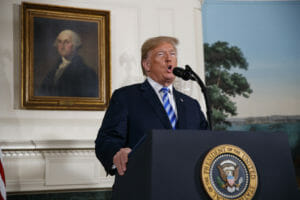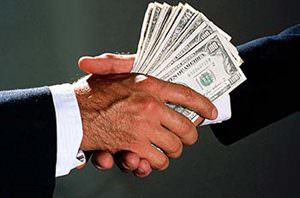If Only Obama Were as Radical as They Say
While conservatives cry socialism, the president is trying to steer a moderate course. Moderation, however, may be the wrong recipe. There is something deeply disturbing about the drip, drip, drip of billions into the banking system with no apparent impact.President Obama faces three overlapping questions: When will middle-of-the-road voters start blaming him for the sick economy? When will he act decisively to deal with the mess that is our banking system? And can he keep managing his political two-step of appealing simultaneously to centrists and progressives?
He has to confront all three at once. The economy will remain in crisis until there is a resolution to the problems facing the banks, and if things keep going bad, more and more voters in the middle will start blaming Obama for not fixing them.
The continuing flood of bad news is also empowering Obama’s critics who style themselves as moderates. They will keep saying that the president, in trying to keep his campaign promises on health care and energy, is “overreaching” and not keeping his eye on the imperative of economic recovery.
It’s hard for the fair-minded not to have some sympathy for Obama. After all, he has been in office for less than two months, and no president since Franklin D. Roosevelt has inherited such an “unholy mess,” as one of his top advisers put it.
Moreover, some of the criticisms directed at Obama are simple nonsense. The Wall Street conservatives — well represented on the financial cable shows and The Wall Street Journal’s editorial page — are trying to argue that the stock market is collapsing because Obama wants to institute a relatively modest set of tax increases on the wealthy, starting in 2011.
But these voices supported lower taxes on the rich when the economy was bad, when the economy was good, and when the economy was so-so. They have no credibility. These same voices claim to worry about future budget deficits. Do they really believe we can fix the deficit without tax increases?
As for criticisms from the moderates, it’s balderdash to call Obama’s policies “radical.” They seem radical only in comparison with the right-wing approach the government has pursued in recent years. Particularly on health care, it would be irresponsible for Obama not to press the reforms he promised in his campaign. And what could be more “moderate” than the open, pragmatic approach the president took during his White House health care summit last week? No, the president is not “overreaching.” His agenda is focused on a few big things.
Unfortunately for Obama, such arguments matter far less right now than unemployment hitting 8.1 percent and the downward spiral of the stock market since he took office. All of the administration’s critics are being emboldened by its hesitancy in dealing with the banking question and its apparent fear of temporary bank nationalization. On this issue, the president genuinely is trying to steer a moderate course — and moderation may be exactly the wrong recipe.
There is something deeply disturbing about the drip, drip, drip of billions of dollars into the banking system with no apparent impact. There is a lack of transparency as to how the financial institutions are using the money.
And there has been little clarity as to how the administration’s actions on the financial front will eventually lead to a recovery. Obama and his speechwriters need to seek inspiration, again, from FDR’s fireside chats to explain what’s happening to a petrified nation and world. His aides promise more of this, and they need to get moving.
This is a global downturn, and the administration has to mobilize the rest of the world’s leaders. The economies of Central and Eastern Europe are a shambles. They could further drag down the rest of Europe, which in turn could make everything worse.
And the top echelon of the Treasury Department is a wasteland of empty desks. It would seem that more people have been tossed out of competition for jobs under Treasury Secretary Tim Geithner than have actually been appointed.
You have to ask: If it was OK for Obama to stick with Geithner before his confirmation despite Geithner’s tax problems, why suddenly does everyone under the secretary have to meet vetting standards that St. Francis of Assisi might find too exacting? Treasury desperately needs reinforcements.
Obama’s calm and deliberative style is one of his greatest strengths. He doesn’t want precipitous action in the midst of a bewildering economic collapse to come back to haunt us all. But there are times when excessive caution can be as dangerous as impetuousness. The president has no choice but to be bold. If there is one thing he should fear, it is fear itself.
E.J. Dionne’s e-mail address is postchat(at)aol.com.
© 2009, Washington Post Writers Group
Your support matters…Independent journalism is under threat and overshadowed by heavily funded mainstream media.
You can help level the playing field. Become a member.
Your tax-deductible contribution keeps us digging beneath the headlines to give you thought-provoking, investigative reporting and analysis that unearths what's really happening- without compromise.
Give today to support our courageous, independent journalists.






You need to be a supporter to comment.
There are currently no responses to this article.
Be the first to respond.